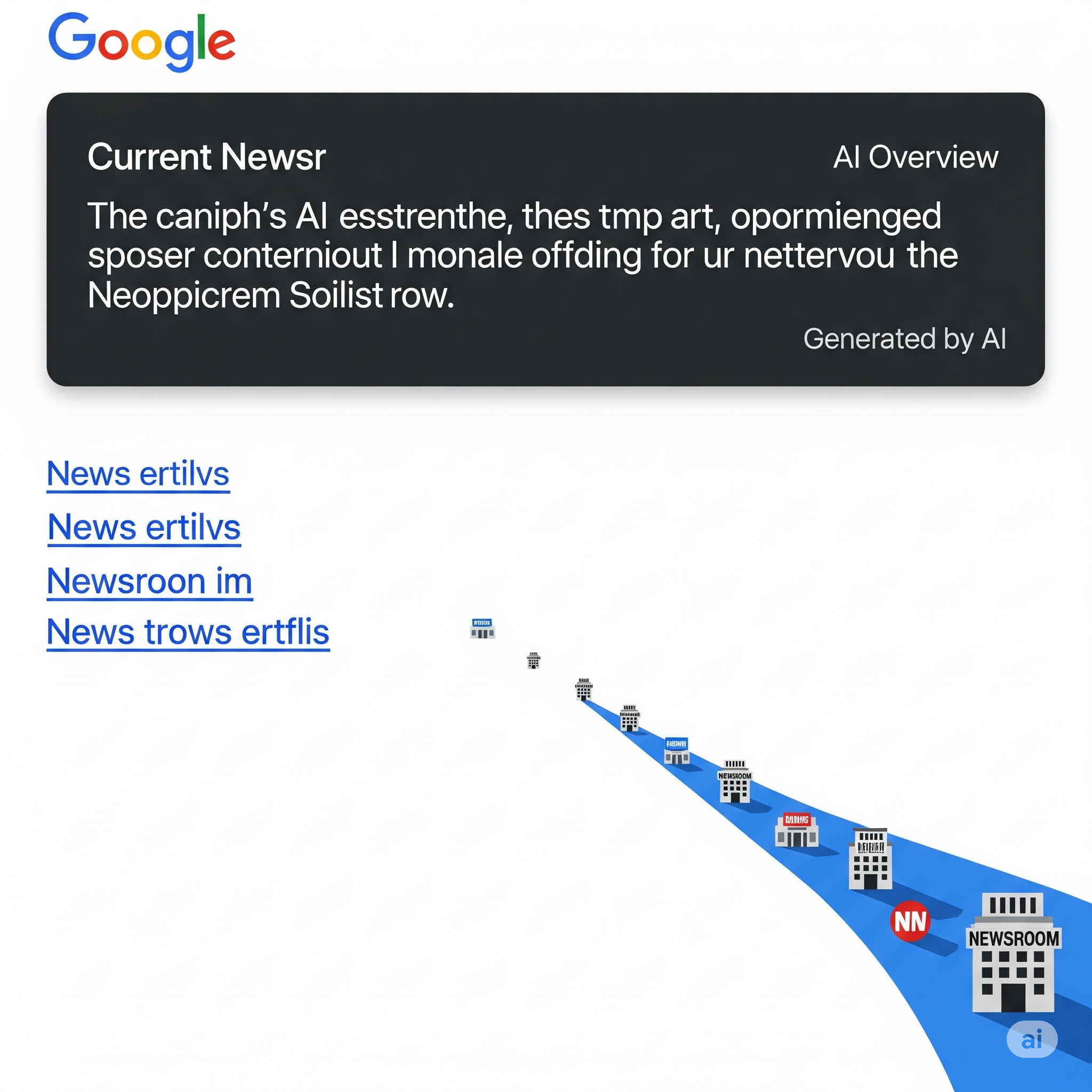A revolution is brewing in how we find information online. Historically, Google Search acted as the primary gateway to news sites—organically driving readers, fueling ad impressions, and sparking subscriptions. But the explosion of generative AI—think Google’s AI Overviews and chatbot assistants like ChatGPT—promises instant answers right on the search page. The casualty? News publishers, who are now confronting plummeting click-throughs, shrinking visibility, and a business model teetering on the brink.
Let’s break down how AI “answer engines” are transforming Google, what the latest studies and publisher experiences reveal, and why the fallout could reshape journalism as we know it.
From Search to “Answer Engine”: How Generative AI Upends Clicks
AI Overviews: The Technology Shift
- Google’s AI Overviews, powered by large language models (LLMs), generate concise, seemingly authoritative answers directly at the top of search results.
- Chatbots like ChatGPT are increasingly handling real-time news questions—in chat interfaces that answer instantly, often without links.
- AI answers often summarize and cite news content, but the original sources sit one or more clicks away or are reduced to small footnotes.
The result:
Users get what they need at a glance—rarely needing to click through to original news articles as they did before.
The Evidence: Traffic Drop-Offs Are Real
- Publisher web traffic from Google search has dropped as much as 50% for some major outlets since the rollout of AI Overviews in 2024–2025.
- HuffPost, Business Insider, and The Washington Post all reported declining search referrals—some by over 50% in the past year.
- Data from analytics firms like Similarweb and BrightEdge show that over two-thirds of news-related searches now end with no click to an external site—a trend called “zero-click search”.
- ChatGPT referrals to news sites are rising, but even dramatic 25x increases add up to a tiny fraction of the clicks newsrooms have lost from Google Search.
What’s At Stake: Journalism’s Traffic and Revenue Collapse
How AI Tools Threaten Sustainability
- Traffic = Revenue: News sites still depend on ad views, website subscriptions, and engagement—each tied to readers actually visiting their URLs.
- AI Overviews and Chatbots turn Google from a referral engine into an answer engine, cutting publishers off from their main audience pipeline.
- Loss of clicks means plummeting ad impressions, fewer opportunities to market subscriptions, and less data on users—threatening solvency, newsroom jobs, and original reporting budgets.
“Google is transitioning from a search engine to an answer engine. We need new strategies.”
— Nicholas Thompson, CEO, The Atlantic
Shrinking Visibility, Shaky Models
- Even outlets previously strong in SEO and digital innovation now see fewer “Blue Links” (traditional web results) as AI-generated summaries take their place.
- Some smaller publishers have already shut down or restructured in response to extreme traffic drops.
- Attempts to replace lost revenue (e.g., subscriptions, paywalls) are strained, as subscriptions too depend on steady traffic and visibility.
Publisher and Industry Response: What Now?
How Newsrooms Are Adapting
- SEO strategies shift: From optimizing for Google’s page ranking to ensuring news content is accessible and citeable by AI tools.
- Trying new platforms: Some partner with chatbots, voice assistants, and aggregator apps in search of new referral pipelines.
- Investing in direct relationships: Newsletters, podcasts, apps, and social—designed to reduce reliance on third-party traffic.
Legal and Regulatory Pushback
- News publishers and advocacy groups are lobbying for fair attribution and compensation models when AI tools use their content to generate answers.
- The News Media Alliance and other groups argue AI features are “theft”—using publisher content without adequate return or credit, and are calling for government scrutiny.
Critical Questions for the Future of News
- Can new AI-driven traffic channels offset lost search clicks?
Early numbers are modest—AI chatbots refer more users, but not enough to fill the massive gap in search-derived traffic. - Will AI reward quality reporting or amplify aggregation?
When AI tools reshape or paraphrase content, the originators may see less value—the incentive to fund original reporting wanes. - What happens to news diversity and trust?
Fewer independent publishers, diminished incentive for local or investigative stories, and reliance on AI accuracy (which studies show still struggles with errors and misattributions).
What Can Publishers and Readers Do?
For Publishers
- Push for transparency: Demand that AI systems clearly attribute sources and respect publisher opt-outs.
- Diversify distribution: Build direct reader channels (newsletters, apps, events) to sustain audiences outside of Google or AI aggregators.
- Experiment with engagement: Foster loyal communities through comment sections, social platforms, and memberships not dependent on search.
For Readers
- Be mindful: When seeking news, follow links to original sources whenever possible.
- Support journalism: Subscribe, donate, or share quality news to ensure outlets can survive and thrive in the AI era.
FAQs
Are all AI summaries bad for journalism?
AI can efficiently deliver basic information, but when users never visit news sites, it undermines both funding and diversity of digital journalism.
What about accuracy—can AI overviews make mistakes?
Studies show up to 60% error rates in certain AI-generated news answers, sometimes misreporting facts or failing to cite the original source. Trust but verify.
Is this just a Google problem?
No. Chatbots, social platforms, and other large tech firms are also creating answer engines that can disrupt traditional referral and business models across the web.
What will save digital news?
Reimagining news distribution, strong ethical and legal frameworks for AI, and active public support for the reporting that powers democracy.
Conclusion: Journalism at a Crossroads
The rise of AI-driven answer engines is upending the online media ecosystem, threatening the survival of news outlets and the diversity of independent reporting. While instant answers are convenient for users, they put tremendous strain on the journalism industry’s fragile economics. Ensuring a healthy, informed democracy in the age of AI will require bold new strategies, transparent frameworks, and active engagement from both platforms and the public.









+ There are no comments
Add yours